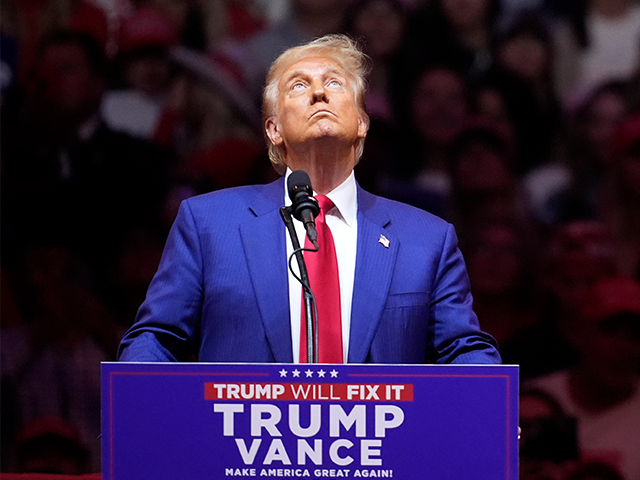If You Can Make It There, You Can Make It Anywhere
Despite the amazing turnout at the Madison Square Garden rally, Donald Trump is not going to win New York City. Even Ronald Reagan failed to win over a majority of the city’s voters in the 1984 election in which he won 49 states. The last Republican to win a majority in New York was Calvin Coolidge in 1924.
But Trump is poised to win around 31 percent of the vote, according to a poll from the New York Times/Siena. That’s a far larger share than his 22 percent in 2020 or 18 percent in 2016. It would be the largest share for a GOP nominee since Reagan’s 48.5 percent in 1984.
It’s also substantially more than the 20 percent generic Republican share in the poll’s question about who voters would support in a mayoral election and more than twice as high as the poll’s share of Republicans. According to the poll, 55 percent of New Yorkers identify as Democrats, 25 percent say they are independents, and just 12 percent are Republicans. Seventeen percent of registered Democrats in the city say they are planning on voting for Trump.
The top issue for New Yorkers in the presidential election is the economy, as it is across America. Perhaps more surprisingly, the second most important issue is immigration. When asked what the most important issues facing New York City in particular are, 27 percent of voters say crime, 19 percent say immigration, 15 percent say the cost of living, and 13 percent say rent and housing prices.
Surging Consumer Confidence: A Trump Trade?
The Conference Board reported a surge in consumer confidence in October. The index of consumer confidence rose to 108 from 99.2 in September, far exceeding expectations for a basically flat report. The present situation index rose 14.2 points to 138, and the expectations index climbed 6.3 points to 89.1.
Unfortunately, the Conference Board does not survey the party affiliation of consumers. But we know that Republican confidence was behind the rise in the University of Michigan’s consumer sentiment index; so, it is a good bet that the rising hopes of Republicans about a Trump victory were also behind the unexpected surge on the Conference Board’s measure.
One worrisome detail from the Conference Board’s measure is the record breaking confidence of consumers that the stock market will rise next year. According to the Conference Board, 51.4 percent of consumers expect the stock market to rise. That’s the biggest share since they started asking the question in 1987.
While it is probable that there may be some “Trump trade” behind this enthusiasm for equities, overwhelming bullishness is usually a contrary indicator. The reason for that is simple. The stock market is forward looking. So, expectations of a rising market get priced in immediately, which leaves less room for the market to actually rise. The S&P 500 is up more than 23 percent year-to-date and is currently trading near the dot com bubble valuations. This is not a guarantee that stocks will fall next year, but it is a reason for caution.
Trump Media Shares Soar
Speaking of the Trump trade, shares of Trump Media & Technology Group Corp. extended a five-week rally Tuesday, elevating the company’s value by more than $8 billion, as markets and investors eye the possible implications of next week’s presidential election.
The company’s stock rose 15 percent in New York trading, bringing the total rally to a remarkable 330 percent over the past five weeks. This surge has increased Trump’s paper stake in the media firm, which owns the Truth Social platform, to about $6 billion.
The firm’s stock has become a reflection of investors’ views on Trump’s political future. This strikes us as odd. If Trump is elected president, he will have far less time to devote to the media company that bears his name. And his statements will be issued through official channels rather than Truth Social.
But that’s obviously not what investors think. Trading volume for Trump Media shares has also intensified, with over 133 million shares exchanged by early afternoon Tuesday, five times the recent average, according to Bloomberg.
